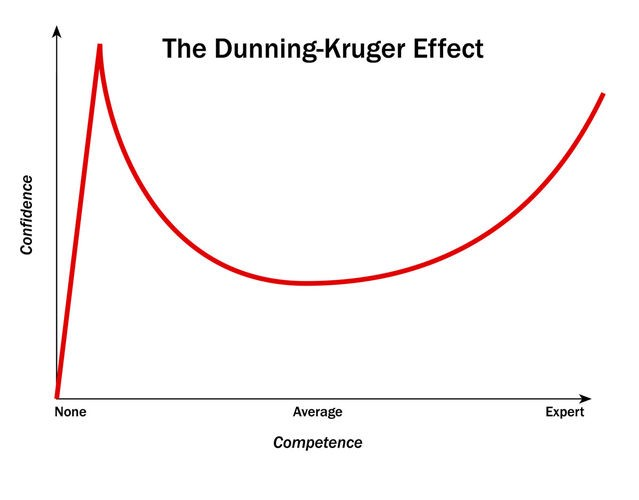
Confident Assertions
The Dunning-Kruger Effect
Confident Assertions: The Dunning-Kruger Effect
The Dunning-Kruger effect is a cognitive bias in which people who know very little about a topic are very confident in their knowledge and abilities. This phenomenon plagues not only the average person, but pastors and theologians as well. Furthermore, Paul referenced it in 1 Timothy in relation to the Gnostics, who made “confident assertions” about things that they did not understand. Ironically, many of the confident assertion made by the Gnostics 2,000 years ago are made by religious leaders today.
Have you met people who think they know a lot about a certain topic, but in reality they know very little? Perhaps a person can play a few chords on the piano but is convinced she is a very talented pianist. Perhaps someone barely knows how to search the web and send email but thinks he is a computer expert. Or perhaps someone you just met is confident that he or she knows you very well.
In the field of psychology, this phenomenon is called the Dunning-Kruger effect. Novices (being naïve) tend to overestimate their competence, while those who have studied a topic more thoroughly (being more realistic) are less certain about their abilities. Refer to the following chart:

Not only is the Dunning-Kruger effect seen in everyday interactions, but it plagues many pastors and theologians as well. Have you heard a religious leader confidently proclaim any of the following?
- “The Bible teaches ________!” (When, in fact, commentators teach it but the Bible does not.)
- “Our denomination bases all of our teachings on Scripture!” (When, in fact, they base their teachings on their interpretation of Scripture.)
- “We do not have a record of what the early Christians believed!” (When, in fact, we have a very extensive record of their writings, available for anyone who is interested.)
- “Our church teaches the historic faith as it was taught in the First Baptist/Catholic/Lutheran/Other (choose one) Church of Corinth!” (When, in fact, the church teaches something very different from the historic faith proclaimed in the New Testament churches.)
Although the Dunning-Kruger effect has a 20th century name, it has been around for thousands of years; for Paul himself referred to it in 1 Timothy 1:6-7: “Certain persons, by swerving from these, have wandered away into vain discussion, desiring to be teachers of the law, without understanding either what they are saying or the things about which they make confident assertions.”
Interestingly, in context, Paul was referring to the Gnostics – a group of heretical teachers who were influential during the time of the early Christians. They confidently asserted that their teachings were true, when in fact it was obvious that their teachings did not agree with Scripture or the apostolic churches.
Perhaps even more interesting is that many of the doctrines confidently proclaimed by the Gnostics two thousand years ago are confidently proclaimed in modern churches – including eternal security, predestination, salvation by faith alone, and the use of images in the church.
Will we, as modern-day Gnostics, make confident assertions of things about which we know very little? Or will we, as true disciples of Christ, search the Scriptures and the writings of the early believers to be certain that what we are teaching is the historic faith?
